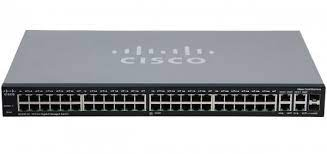WHAT IS A NETWORK OR IP ADDRESS?
WHAT IS A NETWORK OR IP ADDRESS?
Internet Protocol (IP) address is a unique numerical identifier for every device or network that connects to the internet. Typically assigned by an internet service provider (ISP), an IP address is an online device address used for communicating across the internet.
There are two versions of IP addresses that are commonly used on the internet: IPv4 and IPv6.
An IPv4 address is expressed as a set of four dotted decimal numbers, where each octet is separated by a period, such as 192.168.35.4. The three digits in the first octet represent a particular network on the internet while the rest of the digits represent the actual host address within the local network, such as a workstation or a server.
An IPv6 address represents eight groups of four hexadecimal digits separated by colons, such as 2620:cc:8000:1c82:544c:cc2e:f2fa:5a9b.
How do IP addresses work?
Types of IP addresses
1. Private IP addresses
Each device connected to a home network or a private network carries a private IP address. Private IP addresses are non-internet facing and are only used on an internal network. Devices with private IP addresses might include computers, tablets, smartphones, Bluetooth devices, smart TVs and printers. With the increasing popularity of internet of things products, the use of private IP addressing is likely to keep growing.
2. Public IP addresses
An ISP assigns these addresses, which enable a router to communicate with the internet or an outside network. Public IP addresses cover the entire network, meaning multiple devices sharing the same internet connection will also share the same public IP address.
3. Dynamic IP addresses
These IP addresses are constantly changing and a new dynamic IP address is assigned to a device every time it connects to the internet. ISPs buy large pools of IP addresses to assign to their customers automatically. They revolve and reuse these addresses between different customers to generate cost savings and to provide easier network management. A dynamic IP address also offers security benefits, as it's harder for cybercriminals to hack into a network interface if its IP is constantly changing.
4. Static IP addresses
Unlike dynamic IP addresses, static IP addresses never change once they're assigned by the network. While most internet users and businesses don't require static IP addresses, they're a requirement for businesses that wish to host their own web servers. A static IP address ensures that all websites and email addresses associated with a certain web server will always have a consistent IP address so it can be reached on the internet.
5. Website IP addresses
These are IP addresses for website owners who don't host their websites on their own servers but rely on a hosting company to do so. Website IP addresses are composed of the following two types:
- Shared - This IP address is shared among many different websites and is mostly used by small businesses that use a managed hosting service, such as WordPress.
- Dedicated - This is a unique IP address assigned to an individual website. Dedicated IP addresses help website owners avoid getting blocked or blacklisted, something that owners of shared IP addresses might face when malicious behavior is exhibited by other websites sharing the same IP. Owners of dedicated IP addresses can access their websites while waiting for a domain transfer.




Comments
Post a Comment